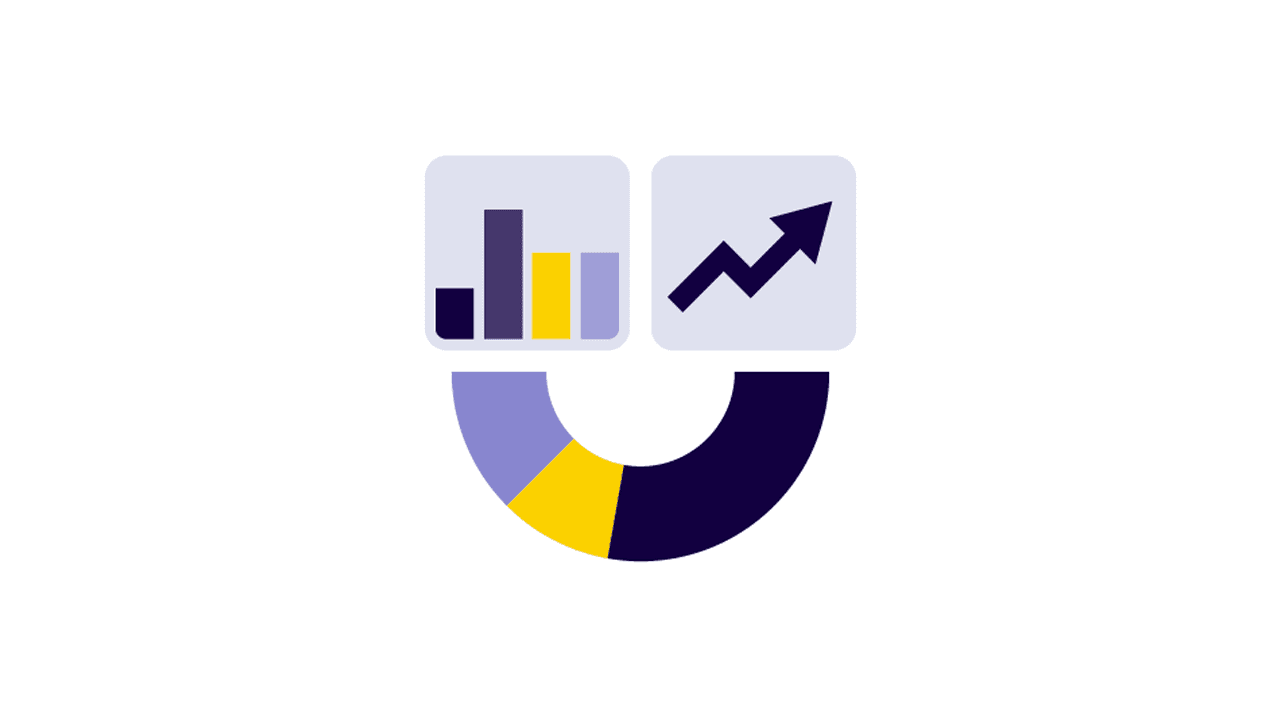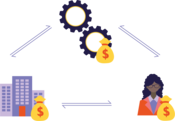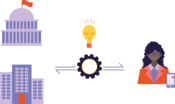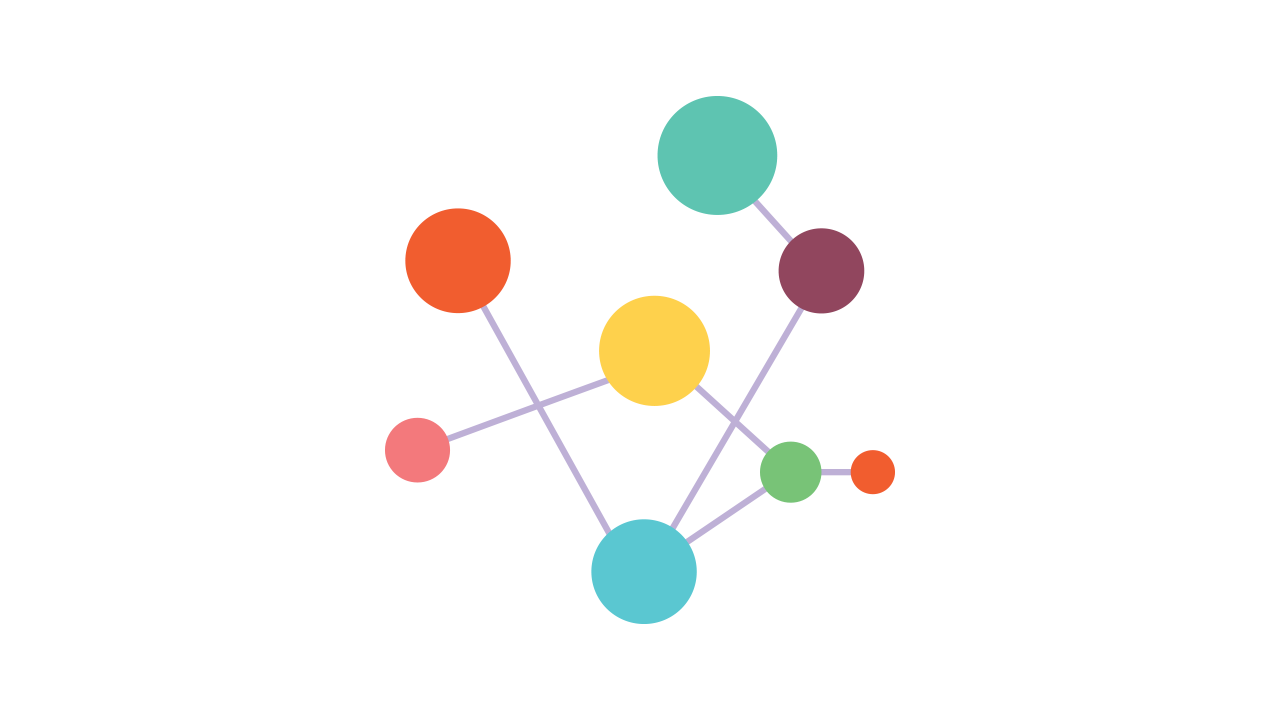Understand
Measuring the value of open ecosystems: 4. Why measure?

Last updated: 5 February 2021
Measuring open ecosystems is important for several reasons:
- To guide regulation and oversight. We need to ensure that ecosystems do not create imbalances that redistribute power and restrict resources to a select few
- To help individual stakeholders identify how value flows. This will help identify where opportunities exist to build relationships, fill market gaps, and build new products and services in untapped areas
- To guide development of business models. It will be easier to understand revenue-sharing potential, indirect revenue opportunities, and to identify services that foster collaboration.
- To enable new networks and collaborative alliances to form. It will be essential to work together to respond to today’s most complex challenges in areas like COVID-19, the climate crisis, and redressing systemic inequities.

Guide regulatory oversight
Closed ecosystems occur when a business creates a platform model and maintains management of all stakeholder interactions by using partner or closed APIs or other platform tools. The big tech bodies (Google, Amazon, Facebook, Microsoft, Apple, Twitter, Alibaba, Tencent, and others) and many of the sharing platforms (Lyft, Airbnb, Upwork, and others) are closed or semi-closed ecosystems.
Evidence shows us that closed ecosystems tend to extract value from participants in unequal ways that favor the platform business owner (for example, in Sangeet Paul Choudary’s State of the Platform Revolution 2021, and as discussed in multiple papers and insight briefs from the Omidyar Network).
The evidence from closed ecosystems shows that, if left to grow at their own pace, open ecosystems will eventually create market imbalances in which some stakeholders benefit at the expense of others, thus replicating the market imbalances inherent in closed ecosystem models. (n Platformable’s post on addressing structural racism and inequities with APIs, we give the example of how an Open311 government system could inadvertently widen inequality, for example.)
We are all participants in key socio-economic domain areas, including open banking and open finance, digital government, public health, and the circular economy. For example, governments around the globe are mandating that banks open up their banking services as APIs in order to create new financial services ecosystems. But in the same way that banking should be available to all citizens and businesses, open banking services should also be accessible to all. As open ecosystems become the norm, our societies will need to measure the impact open ecosystem infrastructures are having on everyone.
Regulation, industry and community participation, and open discussion can help ensure that open ecosystems do not create inequitable opportunities for stakeholders. For community and market discussion to occur and for regulatory mechanisms to be identified and agreed upon, metrics are needed that measure the value being generated in open ecosystems. How that value is distributed amongst ecosystem participants also needs to be measured.

Identify opportunities
The Data Economy Lab proposes new models of data stewardship to ensure that open data ecosystems create value for all stakeholders. This need is evident in open ecosystems that use APIs to expose data, services and large data pipelines via APIs. We have reworded the following quote to broaden its focus from open data ecosystems to open ecosystems more generally:
By mapping the value flows and stakeholders of open ecosystems it is possible to identify new relationship opportunities and natural partnerships.
In open banking, for example, it would be possible for a bank to use open ecosystem mapping to more easily identify fintech consumers of the bank’s APIs that are not in direct competition with a bank’s product range, but are complementary. This can help the bank prioritize partnerships with third party providers who could potentially offer new products and services to their existing customer base.
In digital government circles, government initiatives like API-Agro in France and Business Finland are investing in creating platform ecosystems where businesses expose and build with APIs, whether those produced by government or ones created by other ecosystem stakeholders.
By mapping open ecosystems and the value flowing between them, again it is possible to identify where partnerships could naturally occur. This can also be used by open source and open API standards stakeholders: they could more easily see what grouping of APIs or standards or technologies are used together by API consumers which may suggest partnership priorities.

Develop new digital business models
Open ecosystems may enable mechanisms for market competition including by fostering pricing and business models. But open ecosystems ensure there are also other mechanisms for participation available.
By mapping an open ecosystem and identifying the types of value that flow between stakeholders (co-create, collaborate, complement or compete) it is possible to brainstorm and identify the appropriate business models that could support and strengthen those relationships. It can also help ecosystem leaders to pursue their strategies with greater internal support. Banks can demonstrate that value is generated indirectly through collaborative partnerships in which external partners bring in new customers to the bank. Digital government leaders can demonstrate they are able to create more digital services for citizens at lower costs by allowing third parties to complement basic digital services with population-specific offerings. Health startups can compete in different areas or with greater dynamism with access to open shared services and data.
As Adam Hart from MuleSoft writes, mapping ecosystems “enables businesses to create and nurture value chains and create new, valuable digital experiences and processes that integrate the physical and virtual… New experiences and business models can emerge, the technicalities of mergers and acquisition cease to become risky and disruptive affairs, legacy system migrations are streamlined, outages and continuity handled in a less risky and disruptive manner.”

Solve complex problems
COVID-19 taught us that we will need to urgently seek new ways to share data in real-time, work with a wider range of stakeholders, and communicate with citizens and businesses remotely. APIs are the central unit that can support new models in which we can all collaborate and create the societies we need to manage pandemics, redistribute wealth and reduce inequality impacts, and adapt to the climate crisis. As we discussed in our post on government APIs in the age of COVID-19 at the start of 2020, open ecosystems are needed to enable partnership and new forms of collaboration to solve current global and local challenges.
Being able to measure open ecosystems, the relationships, and the assets available to solve these complex problems is already essential.

Platformable’s open ecosystem focus
At Platformable, we are currently mapping the value flows of open ecosystems in four key domain areas:
- Open Banking and Open Finance
- Open Government
- Open Health
- Open Sustainability (Circular Economy.)
While some of the components in open ecosystems are the same - such as the role of enablers like regulation, standards, security and developer experience - and there are common indirect beneficiaries (society, local economies and the environment), each domain area has a different policy context and different key stakeholders.
In summary
This is the final post in our series explaining how we view open ecosystems and why our mission to map and measure the value they generate is so important. Other posts in this series covered:
- Our definition of open ecosystems and how they differ from platforms and closed ecosystems
- Why APIs are the central unit in open ecosystems
- The types of relationships that can occur between stakeholders.
In our next series on open ecosystems, we will start sharing the data models and value flows we monitor in specific domain areas, including open banking/open finance, digital government, public health, and the circular economy.
In the meantime, we'd love to hear your thoughts and feedback. Please feel free to book a time with our team via our Calendly:

Mark Boyd
DIRECTORmark@platformable.com